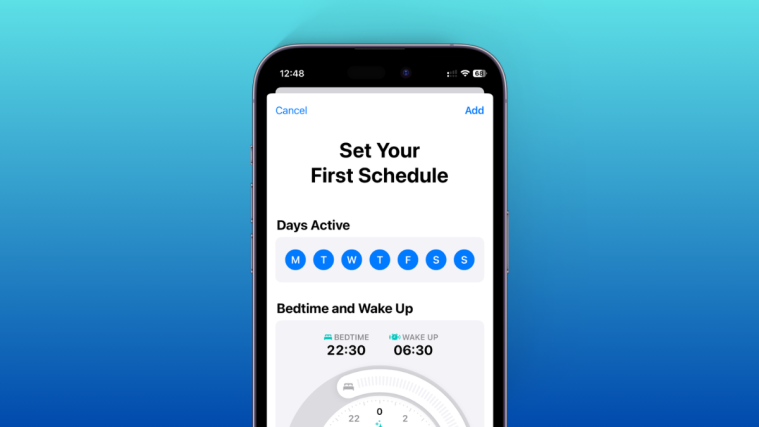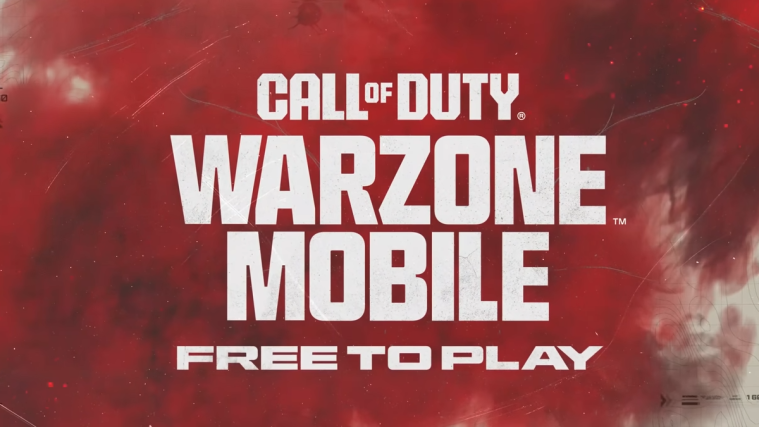Wordle has stuck its jaws in pop culture and it doesn’t feel like it’s going to go away any time soon. At least not until people don’t get bored of sharing their results on social media. But if you’re new to Wordle and don’t want to post an average score pretending you did great, then it’s about high time you understood what the colored boxes in Wordle’s score mean and what a good Wordle score is like.
What do the colored boxes in the score mean?
Curious why all your friends on Facebook and Twitter are sharing these tiny, randomly aligned cubes every day? Wondering why some have only one or two rows whiles others have six? Well, that’s because those rows represent the number of tries it took them to guess the word correctly.
Every row has colored boxes, 5 of them in each row. A green box means the letter is in the right position. A yellow box tells you that the letter is in the word but in a different spot. However, grey tiles indicate that the letter doesn’t belong in the word at all.
The number of rows in the score indicates the number of attempts it took the user to guess the word correctly.
Related: How to Play Wordle on iPhone or Android as an App
What is considered a good Wordle score?
Wordle results are a sequence of emojis that tell a story. They reveal how well you started, how quickly you bounced back from a bad guess, and if you learned from your mistakes even.
FYI, there is no hardcore ranking or badges thrown by Wordle for these scores. But it’s not difficult to form some opinion regarding them.
The average player — like us! — should be able to guess the word in four or five tries. But if it takes you less than that, you are doing very well. If it takes you only three attempts, then in our eyes, you had a great score and you should be proud of yourself. If you are able to do Wordle in 2 tries, like honestly, as you can play the game again in a different browser after knowing the answer, it’s insanely awesome. For those who are claiming to be finding the word in just one attempt, we know you are playing it again in the incognito mode or a different browser or profile, come on.
Check out the stats below from an unofficial Twitter account that created a bar chart out of Wordle scores shared on Twitter. That will satisfy the stats nerd in you, we believe.
Related: 8 TV Shows like Wordle
What are the chances of winning Wordle in two or three guesses?
Winning Wordle in two or three guesses is quite difficult. You really need to have used a great start word to start with, and luck should be on your side for that.
According to an unofficial Twitter account @WordleStats, while second try guessers range from about 3% to 9%, only 1% of the players who share their scores on Twitter have been able to guess the word on their 1st try. But if they were really playing the game for the first time, they could be playing the game again on a different browser for example.
#Wordle 214 2022-01-19
280,622 results found on Twitter.
7,094 hard mode players.1: 1%
2: 🟩🟩🟩🟩 16%
3: 🟩🟩🟩🟩🟩🟩🟩🟩🟩 37%
4: 🟩🟩🟩🟩🟩🟩🟩 28%
5: 🟩🟩🟩 12%
6: 🟩 4%
X: 1%#Wordle214— Wordle Stats (@WordleStats) January 20, 2022
It’s also fair to question the practicality of these results. It’s likely that the majority of players who don’t do great on a particular day don’t often post their results out in the ether of the internet.
According to its creator Josh Wardle, Wordle has 12,972 acceptable guesses. However, the set of possible solutions is even smaller with online analysts claiming the number to be 2,315.
What’s fascinating is that the players have no clue of either the acceptable guesses or the possible solution set. Subsequently, your initial guess could be any one of the 12,972 words that click to your mind, thus making the probability of nailing the guess on 1st try 1 in 12,972.
Seasoned players might fair better because Wordle’s set of solutions contains only frequently used or a bit popular 5-letter words. Not unique or less-known words, thus the vast appeal of the game to people around the world, too.
Naturally, this solution set of common words has a greater chance of overlapping with a player’s guesses, since he/she might also start with common words. Even then the best-case scenario is a 1 in 2,315 chance of nailing it on the first try. It’s mathematical unlikely.
Sounds challenging no? That’s the fun part of Wordle. The idea of having a brainstorming session every day to keep the juices flowing has caught on with the internet and is showing no sign of slowing down.
Related: Wordle: What does Yellow mean?
Can Wordle scores be faked?
Indeed they can be. How? There are several ways to fake them since you can always cheat your way around it. Since the game only be played once and everyone around the world plays the same puzzle on a given day, it’s easy to Google search your way into knowing the solution to today’s Wordle.
Even if don’t want to blatantly cheat with a Google Search, you can easily fake a Wordle score by playing it once on one web browser and then putting in the answer from before on another browser (or an Incognito tab). While that takes the fun out of the game, you can still use this technique if you guessed all the wrong answers in your first six tries on Wordle. If you guessed a word in your final attempt but don’t want to look like an idiot when sharing your score, you can open Wordle on another browser or private window and play it like a champ.
But that’s not it! To avoid spending time uploading new puzzles every day, the game’s creator Josh Wardle has added all of Wordle’s answers right within the game’s code. And it doesn’t take a genius to decrypt this as well. Simply, right-click on the Wordle page, use the View Page Source function on Chrome or Firefox (or Inspect Element on Safari) and click on the “main.e65ce0a5.js” link inside the script to access all of Wordle’s puzzles from the future.
If you don’t want to go through all these steps, simply click on this link and use the CTRL + F (on Windows) or Command + F (on Mac) to search for today’s Wordle (if you guessed it right). All the words that appear next are for the subsequent days after the present day. This trick should help all of you who don’t want to lose your winning streak on Wordle but at the cost of playing the actual puzzle.
How to share your Wordle score
Sharing your Wordle score with friends is quite easy. You can copy your glorious results and paste them wherever you want or you can choose any app from your device’s sharing menu to share it from. Read our step-by-step sharing guide to find out how you can share your Wordle score easily.
Related: How to Share Wordle Scores on Facebook, Twitter, or anywhere
How to improve your Wordle score
Things are fun when you’re good at them. And being good at Wordle is not hard. There are some tips and tricks you should follow to give a structure to your everyday guessing process and boom! You’ll be off to the races. Here’s what you can do to improve your Wordle score.
Remember your first guess is very important. Since you have no data available on the word, it’s good to get something good on your first try itself.
Try the words that contain popular letters in the English language, these are the vowels: A, E, I, O, U and N, R, S, T. Letters like X, W, Q, Z occur very rarely in 5 letter words much less 5 letter common words that are possible Wordle solutions. Avoid them. Also, avoid using the previous day’s solution.
Some commonly used opening words are: STARE, ARISE, TEARS and MAKER. Players also prefer using ADIEU and AUDIO to figure out the vowels as early as possible.
Guessing positions of already revealed yellow words is also crucial. What most players forget is that the yellow letters cannot be at spots already occupied by green cubes. That should narrow down the guessing margin further.
Related: Related: Wordle: What does green mean?
Take your time, you only get 6 tries. Never waste a try and always try to figure out the ending of the word first. For example, knowing the word ends with ING should greatly reduce the deduction time for the remaining 2 letters. But don’t get too caught up in guessing rhyming words.
Always use a strategy and follow it to a t to make playing Wordle fun and worth your while.
Remember, it’s not the score that counts…
If you’ve played Wordle, you’d know the meaning of those colored boxes by now – green tells you that you’re correct about the placement of letters; yellow tells you that you’re almost right about the choice of letters but haven’t placed them correctly and lastly; grey says you’re wrong about your choice of letters. An average user who’s playing the game without any tricks up their sleeve should be able to guess the puzzle in their 3rd or 4th attempt but this varies depending on how lucky one gets with their first attempt.
If you see all green squares in their 1st or 2nd attempt in someone’s tweet or post, then you know that luck has favored them or they just knew the answer beforehand and are making their guess seem more realistic. If you see someone struggle their way from yellow and grey boxes to the correct answer on their 6th attempt, you’ll know that they genuinely tried and will applaud them.
An interesting aspect of Wordle is that once you’ve cracked today’s puzzle, you can now decipher how others fared in their attempts when they share their scores. In other ways, Wordle is good at storytelling. If you know the answer to today’s puzzle, you can easily decrypt what letters a player got right and script up a word they may have guessed. That’s probably what makes sharing Wordle scores more fun as it’s not just about points but more about how you landed on the right answer.
If you have any more questions feel free to comment below.






What causes stats to reset? I skipped playing one day, and my stats reset.
If you were on the same browser, it sounds like your cookies were cleared.
What is considered a long wordle streak? I’m 12 for 12 since I started wordle, with 6 of the right answers coming after 3 guesses.
Imagine that! A spelling error on this page! “Seasoned players might fair better …” should surely be “Seasoned players might fare better ….”
Publicly recognizing mistakes is a great habit of the unlikable.
💖
Fare, thee well! Lovely response and your coincidental perfect name for the error in question.
That’s a grammatical error, not a spelling error.
Usage error. Not spelling ! These are synonyms-sound alike words with different spelling and different meanings.
Here is how we could have a statistical comparison after having played at least 20 games: give 100 pts to getting right at the first try, 80 pts. in 2 attempts, 60 in 3, 40 in 4, 20 in 5, and 10 in 6. Add them together and divide that total by the number of games played. Any score above 50 is pretty darn good.
Before someone points it out…this is an arbitrary scoring system. Just using logic.
I would challenge the odds of guessing… if you play each day you may get a feel for what may be used for the day… that is, by considering the words for the previous several days, one might deduce that their first word choice should not contain the predominant letters from prior words. For example, if one were to start with “tears” and the word wound up being “stare”, it would be safe to assume (by sheer odds) that all these letters, blends, positions, etc. won’t be used in the next few days’ words.
Dear Nerds,
Re: “Seasoned players might fair better because Wordle’s set of solutions contains only…”
Really?!
(Remember, just because spell check says a word is legitimate doesn’t mean it’s the right word…)
Thanks for the stats! I’m curious on what the Wordle feedback is for guessing correctly in the 2nd and 1st guess, given the rarity. Guessing correctly at 3 out of 6 is “impressive”, 4 out of 6 is “splendid”, and 5 out of 6 is “great” (I’ve actually never had to get to 6 out of 6 in my 10 attempts to date).
Not being a stats person I may be about to say something stupid but …..
Is it fair to say that three could be the optimum score because of the amount of sheer luck required to score one (total luck) or two (still REALLY lucky)?
My last score of two was because I used a great starting word (with the 4 most-used consonants), but also got lucky with one green and two yellows, better than I usually get on the first guess. E was ruled out on the first guess which wiped out a huge number of words (patterns consonant(s)-vowel-consonant(s)-E or vowel-consonant-vowel-consonant-E). That improved my odds some more. I then got lucky with the next guess.
But going back to your point, most of the time, even when using a great starting word, there is simply no way to have a 50% or better chance of guessing correctly on the second try. There are just too many plausible choices based on the limited feedback from the first guess.
Getting a good score is a matter of shifting the odds in your favor incrementally, not making mistakes (like reusing a letter/position that was ruled out) and then also getting good luck. I’m still working on the first two of those three!
That was fun but cheating is boring. Not sure that w is that rare, it was in 2 words this week. I have got an average of 3 and twice got it in 2, granted that was luck with my first word. My strategy is to use common vowels and consonants and don’t forget double letters but not until my 3rd try. Have fun and good luck!
“For example, knowing the word ends with ING should greatly reduce the deduction time for the remaining 2 letters.”
Having played almost 90 times combined (original site plus NYT) I’m pretty sure of the following exclusions:
-No plurals
-No verb conjugations (“sleep” or “build” are possibilities, “being” or “fried” are not.
Since different endings are not being considered I see no value in focusing on them. What (usually) works well for me is to try to figure out the pattern of the word – the sequencing of vowels and consonants and how it’s limited by the results up to that point.
If anybody has actually seen a solution that violates the two rules above I’d like to hear about it.
Here’s the missing closing parenthesis for line 6 of my post above: “)”.
🙂
Why does my graph bar show a 3 when I get the word in the 2nd try?